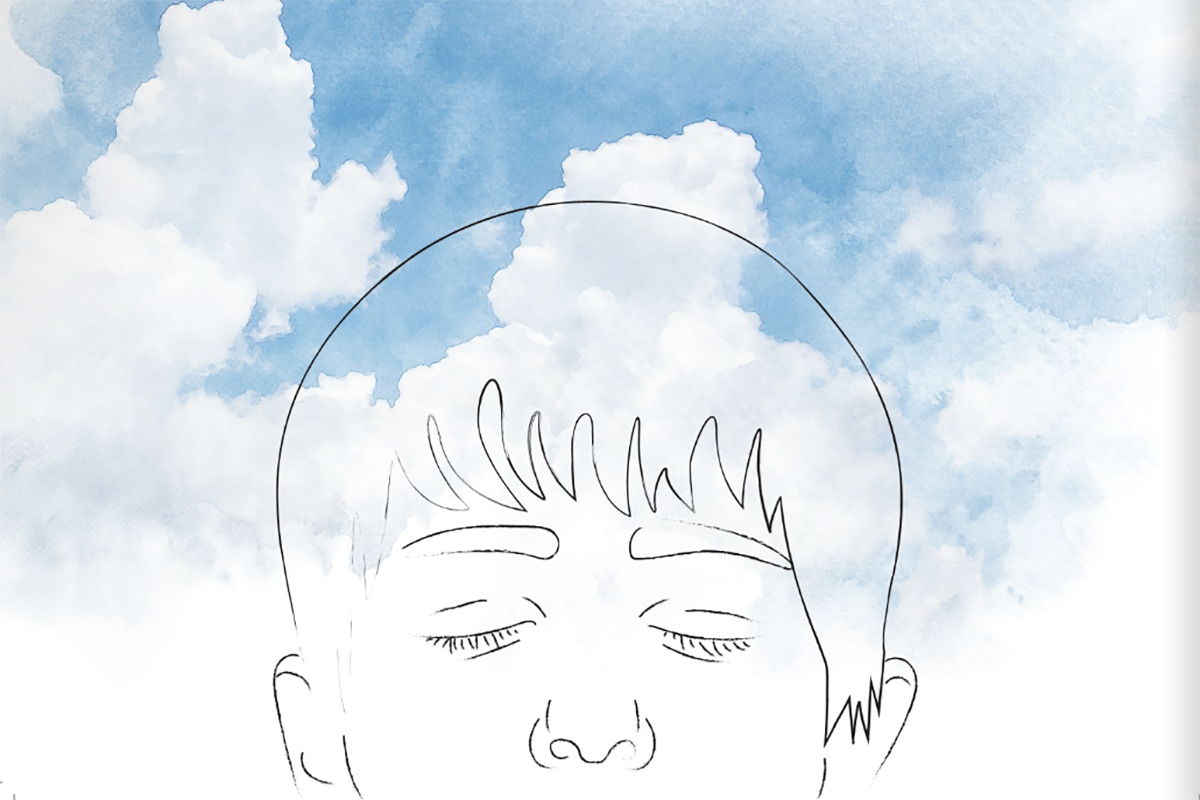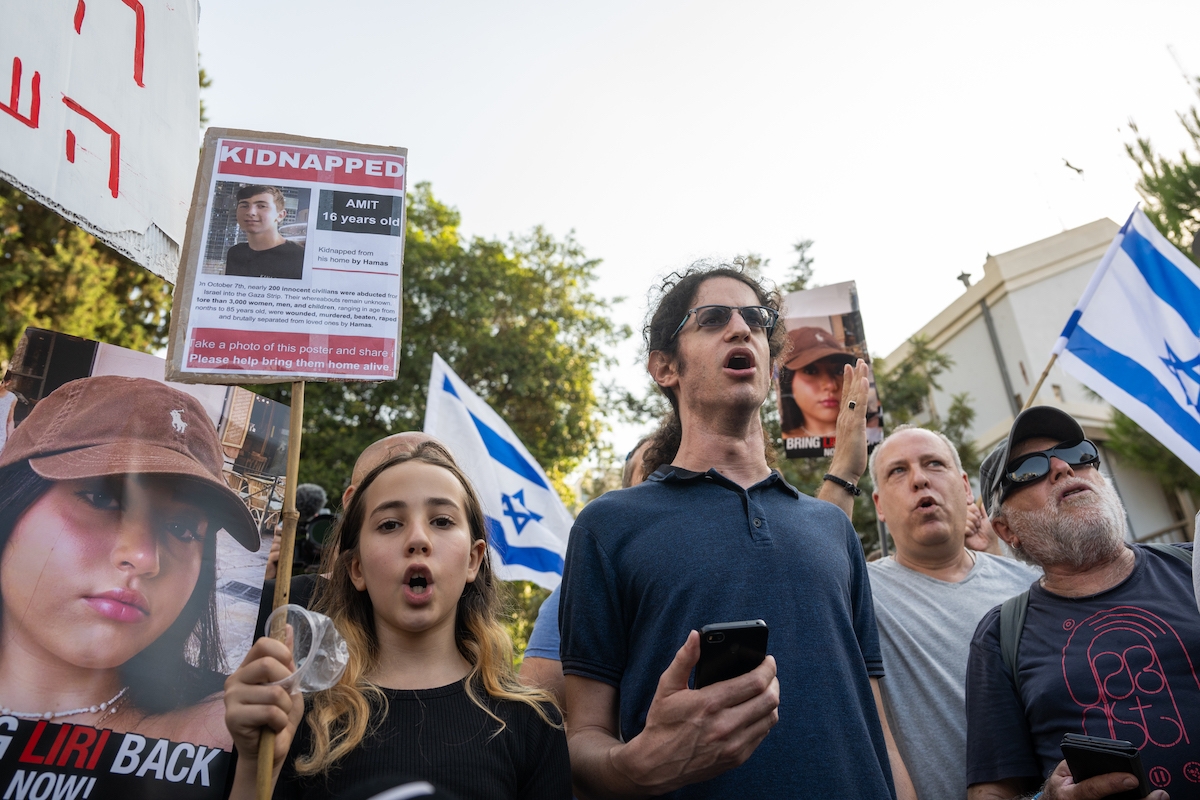Roughly 200 people are currently being held hostage by Hamas, including babies and young children. Each story is heartbreaking beyond measure, and trying to take them all in feels too hard to bear.
One of these hostages, Lilach Kipnis, a social worker who worked with Israeli children living near the Gaza border, is helping kids all over the country as they face daily rocket fire, even from captivity.
For years, Kipnis worked to help children deal with the traumatic reality of constant sirens and running to shelters that’s been part of their lives long before this most recent Hamas attack. In 2021, she wrote a book titled “Shirat HaTrigger,” roughly translated to “The Trigger’s Poem,” for the children who experience “life in a constant state of emergency,” as she wrote in the book’s foreword. Now, with much of Israel in a constant state of emergency, her sons, who are actively fighting for her and their father’s release, have made the book available online for every family that may need it, filled with tender rhymes and helpful advice.
“In this reality, we’re exposed to triggers: These stimuli that remind us of real danger, and make us react like the danger itself is present,” Kipnis explains in the opening of the book, beautifully illustrated with delicate bursts of digital watercolor. “The trigger creates a reflexive physical reaction that sometimes passes right away when we understand it’s not really a danger, but sometimes can take us out of balance physically, emotionally, and functionally for a long time.”
She shows these triggers in the book — the slamming of a door, the sound of thunder, fireworks, a loud truck — and what children can do to deal with them.
Kipnis wanted parents to know that these triggers are normal and good — and that they shouldn’t dismiss them by saying “everything is OK” or “you’ve got nothing to worry about.” Instead she wanted to help children distinguish between a state of fright and a state of danger, and to find a release from that triggered state — through breathing exercises, movement, a hug or play. She even mentions a “butterfly dance” in which kids flap their arms and hug themselves in order to calm down.
“In these days, the book can help… I know that my mom certainly would’ve wanted me to share it now,” Yotam, her eldest son, recently told Channel 13 News in Israel. “As a child who grew up in the Gaza envelope, and even before the terrible days we’re going through now, I jump at every sound from a motorbike or a slamming door. I hope this gets to as many parents who can use the book, read it to their kids… and maybe find some comfort,” he added.
On the morning of October 7, Yotam was woken up by an urgent call from a friend. “Did something happen?” he asked his frantic friend, only to have him respond, “That’s what I wanted to ask you.”
Right away, he called his mom, who was born in the Be’eri kibbutz, the daughter of one of its founding members. She told him that they were sheltering in their safe room and were hearing gunfire outside, and that she saw soldiers walking outside. She was with her husband, Eviatar Moshe Kipnis, 65, who goes by Tari and has a neurological disorder called CIDP, which makes him reliant on medical treatment and a wheelchair, as well as on a medical aid. That was the last time he heard from her. Yotam says he believes the soldiers his parents saw were camouflaged Hamas terrorists. According to Yotam, the roof of their home was burned down, and their neighbors, who were rescued, confirmed that the couple wasn’t at the scene during the burning.
Tari’s aid, an immigrant from the Philippines, Paul Vincent Castelvi, was murdered during the attack, which led to the killing of over 100 kibbutz members. Paul, who was 40, left behind his wife, who he met in Israel, a fellow Filipino aid worker who works at a neighboring kibbutz. She is currently pregnant with their first child.
“Paul was an amazing person and I still haven’t reconciled with the knowledge of his death,” Yotam wrote on Facebook page, “It’s inconceivable, and it’s hard for me to believe that I will never see him again.”
The couple’s other son, Nadav, told the AP that eight members of Lilach’s family, including three children, are also possibly in captivity. At least 10% of the members of the kibbutz were killed during the attack. Yotam, an activist with Zazim, an Arab Jewish community action group., has been working tirelessly to try to get his family out of captivity. Tari was at first believed to be one of the hostages — Yotam and his family even gave his father’s medication to the Red Cross, in hopes that it makes it to him. This Wednesday, Yotam got the devastating news that his father’s and uncle’s bodies were recovered in Be’eri and that they had been murdered by Hamas, but Lilach is still believed to be held hostage.
“My mom is strong, but I’m sure she’s scared and nervous. She has experienced other people’s trauma so often that she knows what you need to do mentally, and she also was never ashamed to ask others for help,” Yotam told At Magazine earlier this week.
“We can’t forget the hostages,” he begged News 13 last week, asking journalists to keep covering the release efforts, adding, “where our government has abandoned us, don’t abandon us too.”
In the last page of her book, despite experiencing decades of missile fire, Kipnis sends the children reading a hopeful message: “One day will come” she writes, when we all “sit together and remember, how once upon a time, everything was scary, and now all is normal, a difficult time, but it has passed and now there’s finally a routine.”
We pray for an end to this scary time, for Kipnis and for all.









